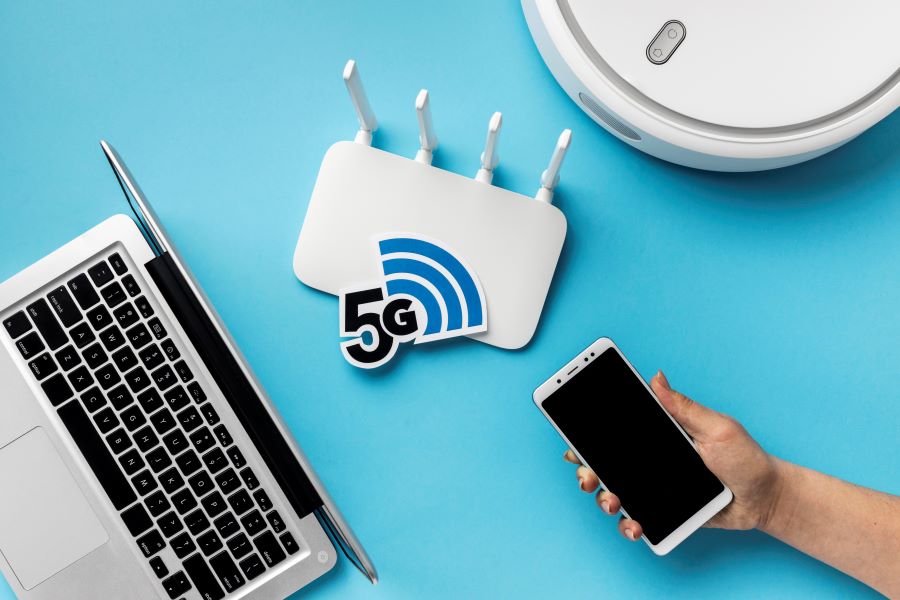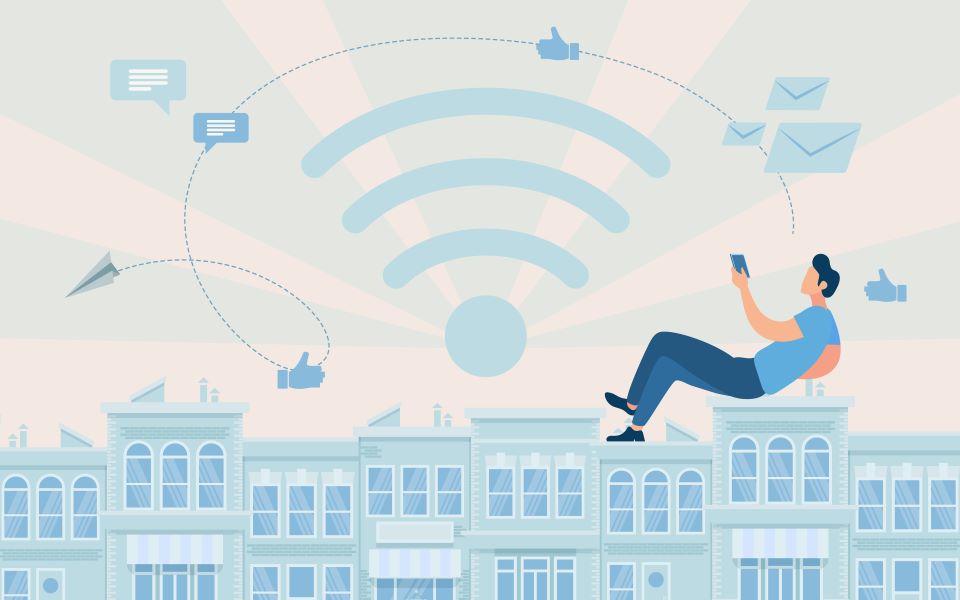We have all wondered whether the Wi-Fi router, like any other electronic item, might get hot if kept on for long hours, have we not? Like our smartphones, they also might be getting heated up or consuming a lot of power as it is switched on 24/7, right? It is important to understand these small but crucial points when using any electronic goods and the Wi-Fi router isn’t any different.
Buy Airtel Wi-Fi with exciting benefits!
Firstly, let’s delve into understanding the power consumption of a Wi-Fi router. It’s common knowledge that our Wi-Fi routers are a fundamental part of our digital lives. However, many of us are oblivious to the power consumption of Wi-Fi routers. On average, a typical home router uses about 6 watts per hour. Over a year, this amounts to approximately 53 kWh, which, in monetary terms, might not seem like a lot but can add up over time.
Now, what are the factors influencing Wi-Fi router’s energy usage? The power consumption of a router can vary depending on the model and its features.
Also Read: What is Wi-Fi 6 – Speed, Features & Benefits
Usage and Purpose:
Many people use the Wi-Fi connection for different purposes. It could be work that requires us to use it for a fixed amount of time daily or it could be security purposes, where the Wi-Fi router needs to go 24/7. Some people also use it for high-intensity tasks. For instance, high-performance routers used for activities like gaming or streaming HD video can consume more power. Routers with multiple antennas, dual-band routers (2.4 GHz and 5 GHz), and those with additional features like USB ports or VPN capabilities also tend to have higher energy use. These uses differ from person to person and the routers and their utility also differ as per the tasks at hand. So, one can choose the routers as per the utility of the same and that might make a difference.
The Environmental Effects:
The environmental impact of keeping your router on 24/7 is worth considering. By leaving our Wi-Fi router on all the time, we contribute to the pervasive problem of ‘standby power’ – power consumed by devices when they are not in use or in standby mode. We do this with other gadgets too sometimes like leaving the adaptor or the charger on while no one is using it. This not only leads to higher electricity bills but also has a negative impact on the environment by contributing to unnecessary energy waste.

The Pros and Cons of Switching Off the Router:
So, what are the pros and cons of switching off your Wi-Fi router? On the one hand, turning off the router when it’s not in use can save energy and reduce our electricity bill. It can also potentially prolong the life of the router by reducing the time it spends generating heat. On the other hand, if the router is providing a Wi-Fi connection for devices like security systems or smart home devices that need a constant internet connection, then it might not be feasible to turn it off. So, buying a router as per its utility can be helpful.
As for the optimal times to switch off your Wi-Fi router, it’s generally recommended to turn it off when it’s not being used for long periods – for example, when we’re out of the house or sleeping. This can significantly reduce the Wi-Fi router power usage without causing any major inconvenience.
Tips on how to save energy:
Aside from turning it off when not in use, one can also consider using a timer to automatically turn off the router during certain times of the day. Investing in energy-efficient routers or those with energy-saving modes can also help reduce power consumption.
Debunking myths: Does turning off your router affect internet speed? Contrary to some beliefs, switching off your router periodically does not have a detrimental impact on your internet speed. In fact, it can help improve the performance by clearing the router’s memory and allowing it to perform updates.
Also read: Benefits of Upgrading to Wi-Fi 6 in Your Home or Business
Smart routers: As technology advances, manufacturers are developing smart routers designed to use less power. These routers adapt their power output based on the number of devices connected and the amount of data being processed, leading to lower power consumption of the router.
So, how much can we save by turning off our router? The savings on our electricity bill can be substantial over time. Let’s say the router uses 6 watts per hour. If we turn it off for 8 hours a day, we can save about 17 kWh in a year – a small but meaningful contribution to energy conservation and reducing your utility bill.
Balancing internet connectivity and energy conservation is essential. While we rely on our WiFi routers for constant connectivity, being mindful of their energy use can lead to financial savings and a reduced environmental footprint. By understanding the power consumption of our routers, we can make smarter decisions about their use.
To sum up, understanding the power consumption of Wi-Fi routers and knowing when to switch them off can help in energy conservation and cost savings. We hope this guide gives you a detailed insight into the power consumption of your Wi-Fi router and when it would be best to switch it off.
For some amazing high-speed Wi-Fi connection that is unlimited and dependable, switch to Airtel Xstream Fiber broadband services.
For fast internet speed on the go for your smartphones, switch to Airtel postpaid or prepaid connections because wherever you go, your high-speed internet goes with you. For those who are not a huge fan of watching films and web series on OTT platforms, Airtel’s DTH services are simple, convenient and all-inclusive.


 Get App
Get App  Airtel Store
Airtel Store  Login
Login 


